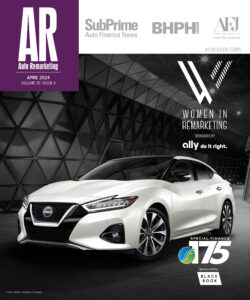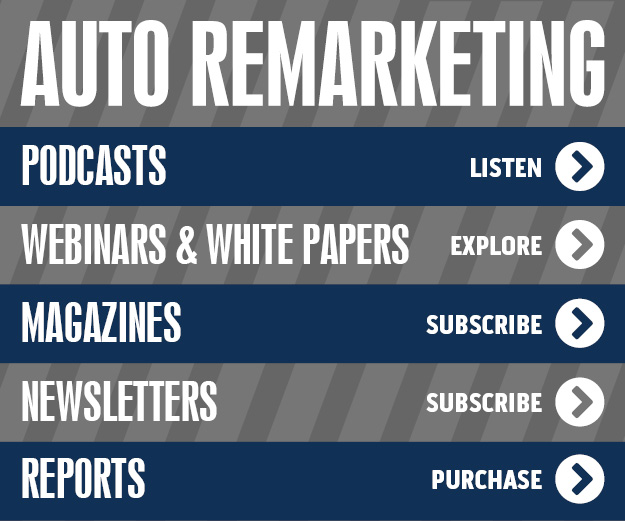Sonic’s EchoPark used-car stores: cash-positive, in line with expectations

Sonic Automotive’s newest EchoPark used-car store in Colorado Springs, Colo., was “cash positive” in its third month of operation — about six months ahead of when the company’s initial EchoPark stores reached cash positive positions, said Sonic president Scott Smith.
“EchoPark results were in line with expectations,” Smith said during the company’s third-quarter earnings call in October. “Our store platform in Colorado was again cash flow positive during the third quarter and moving towards overall profitability.”
The Colorado Springs EchoPark store opened in June.
Smith also said the dealership group plans to open 10 more EchoPark stores by the end of 2018.
Those stores are slated for Florida, Georgia, North Carolina, South Carolina and the Texas markets of Dallas-Fort Worth, San Antonio, Houston and Austin.
Sonic’s pre-owned stores segment, which includes its six EchoPark stores, all in Colorado, and its two non-EchoPark stores in Florida and Texas, retailed 2,400 used units in the quarter, up 815 units, or 51.4 percent, the company said.
Used-vehicle gross profit per unit retailed at Sonic’s pre-owned stores decreased 24.3 percent to $830, “due primarily to higher costs of acquisition of inventory at auction as the company ramped up inventory at our newest locations,” according to a document Sonic filed with the federal government.
Jeff Dyke, Sonic executive vice president of operations, said Sonic remains committed to establishing EchoPark as a national brand capable of going head-to-head with used-car retailing giant CarMax Inc.
Sonic opened its first EchoPark used-only store in November 2014 in Denver.
“I can’t put a time line on when we’d be at the same level of stores as CarMax, but certainly our goal is to build a brand that will compete with them,” Dyke said during a telephone interview immediately following Sonic’s earnings call.
“They’re kind of by themselves — from our perspective — across the country, and there’s plenty of room in that space. We think there is lots of upside, and that’s our target.”
A national brand
As Sonic adds more EchoPark stores and establishes its national brand, look for stores to open in markets where Sonic does not have a new-car store presence, Dyke said.
“That’s been our intention all along, and we are growing as quickly and efficiently as we can,” Dyke said during the earnings call. “You can expect to see an EchoPark in most of the major metros and used-car markets across the country.”
Headquartered in Charlotte, N.C., publicly-held Sonic Automotive on Sept. 30 operated 104 new-car dealerships in 13 states, representing 25 brands.
CarMax of Richmond, Va., also publicly-held, is the nation’s largest retailer of used vehicles with over 180 used-vehicle stores in 39 states. It retailed 671,294 used cars and trucks in its most recent fiscal year that ended Feb. 28, 2017.
Dyke said EchoPark has been “very” successful in its mission to purchase from consumers many of the used cars and trucks vehicles it sells, but would not provide details.
“We don’t want to give out too much information, but we’ve had some really nice short-term success with EchoPark,” Dyke said. “We want to keep watching the brand grow. As we become more successful, we’ll share more information.”
Sonic’s used-vehicle days’ supply stood at 38, down from 41 in the third quarter of 2016.
Smith said he expects used-vehicle days’ supply “on the Sonic side” to continue to drop through the end of the year, and inventory will be added as new EchoPark stores open.
A “challenging” quarter
In its third quarter that ended Sept. 30, Sonic’s revenue dropped 2 percent to $2.51 billion compared to last year’s third quarter.
Smith said the hurricanes that hit Texas in August and the southeast in September made the quarter “challenging” from an operational standpoint.
Hurricane Irma either temporarily closed or impacted to varying degrees 24 new-car dealerships in Sonic’s Alabama, Florida and Georgia markets; Hurricane Harvey temporarily closed 19 new-car dealerships and five collision repair centers in its Houston market.
The BMW brand is “at the bottom of their cycle in terms of product” said Dyke, explaining that the company’s BMW dealerships in its Houston market were already struggling prior to the hurricane.
BMW is “30 percent of our profit mix, and when they struggle its more difficult for us to overcome,” Dyke added.
But despite those headwinds, Sonic’s net income increased 7.3 percent to $19.4 million in the quarter, and its gross profit increased 1 percent to $362.6 million.
Sonic’s financial results were boosted by its F&I revenue, which was up 3.7 percent to $92.9 million and its F&I gross profit per retail unit, excluding fleet, which was up 4.8 percent to $1,408.
Sonic’s overall used-unit sales dipped 0.3 percent to 30,841, and its revenue per used unit was up 0.1 percent to $21,391 compared to the year-ago quarter. Gross profit per used unit was down 0.9 percent to $1,269.
Sonic’s same store used-unit sales dropped 2.3 percent to 29,854, revenue per used unit rose 0.2 percent to $21,471, and its gross profit per used unit declined 1.1 percent to $1,224.

 View The Latest Edition
View The Latest Edition

